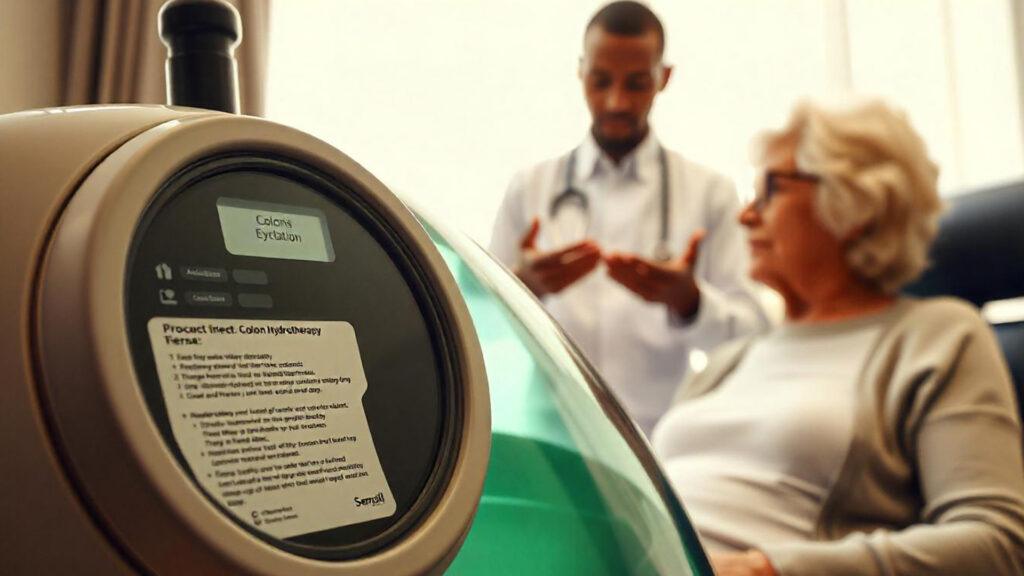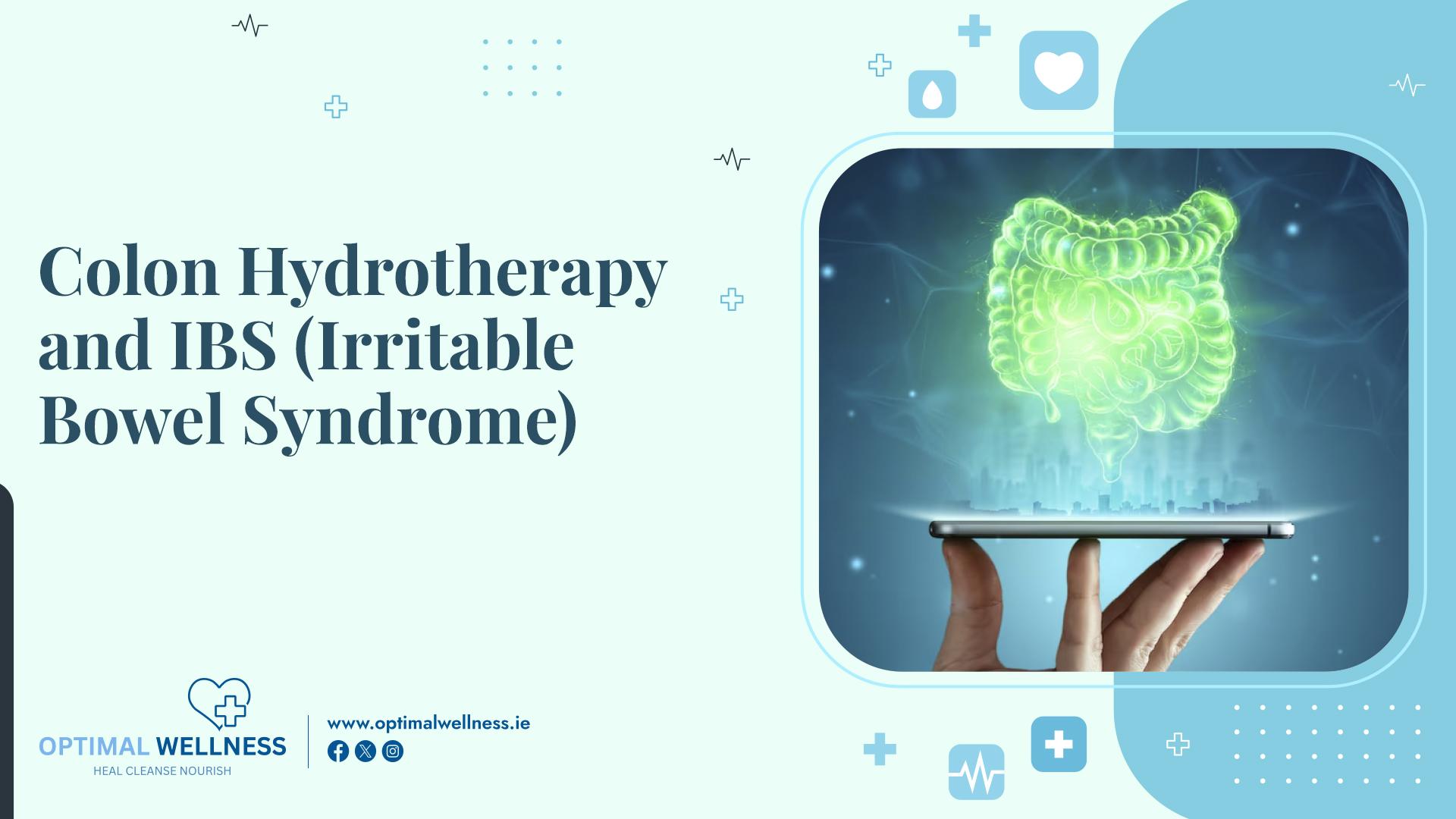Irritable Bowel Syndrome (IBS) is a common digestive disorder that affects the lives of millions of people worldwide. Identified by symptoms such as abdominal pain, bloating, gas, diarrhea, and constipation, IBS can significantly impact daily life. Many people with IBS search for alternative therapies to manage their symptoms, one of which is colon hydrotherapy.
While some people find relief through colon hydrotherapy, others are skeptical of its benefits, especially for chronic conditions like IBS. It might provide temporary relief for some people with IBS, particularly those experiencing constipation.
However, it’s essential to understand that IBS is a complex condition with varying symptoms, and colon hydrotherapy may not be a one-size-fits-all solution.
Colon Hydrotherapy over IBS (Irritable Bowel Syndrome)

Benefits of colon hydrotherapy for people with IBS:
Relief from Constipation
For individuals with constipation-predominant IBS, colon hydrotherapy may help soften and eliminate hard stool, providing immediate relief. By flushing out built-up waste, patients often report a decrease in bloating and abdominal discomfort. However, this is not a cure for chronic constipation.
Reduced Bloating and Gas
Bloating and excess gas are common complaints among those with IBS. Colon hydrotherapy may help release trapped gas and cleanse the colon, temporarily reducing bloating and providing relief. Some people feel lighter and more comfortable after the procedure.
Improved Gut Function
By clearing the colon of waste and toxins, hydrotherapy might support improved gut function and bowel regularity. This can be helpful for those whose IBS symptoms fluctuate between diarrhea and constipation.
Temporary Symptom Relief
While colon hydrotherapy can offer temporary relief from specific IBS symptoms, such as bloating and constipation, it is not a long-term treatment for the condition. IBS is a functional disorder involving how the gut and brain interact rather than structural problems in the colon. Therefore, the root causes of IBS, such as stress or food sensitivities, need to be addressed for sustained relief.
Stress and Symptom Management
Stress is a well-known trigger for IBS, and managing stress is key to reducing flare-ups. Some people find the experience of colon hydrotherapy to be relaxing, which could have a positive impact on stress-related IBS symptoms.
Dietary Practices to Manage IBS Symptoms

While colon hydrotherapy may offer temporary relief, long-term management of IBS is best achieved through both dietary changes and colon hydrotherapy combined. Here are some effective nutritional strategies to help manage IBS symptoms:
Follow a Low-FODMAP Diet
The low-FODMAP diet has been shown to reduce symptoms in up to 75% of people with IBS. FODMAPs (Fermentable Oligosaccharides, Disaccharides, Monosaccharides, and Polyols) are types of carbohydrates that can be difficult for the digestive system to absorb, leading to gas, bloating, and diarrhea. Foods like onions, garlic, beans, and certain fruits (such as apples and pears) are common triggers. Working with a Nutritional Therapist to follow a low-FODMAP plan can help identify your personal triggers.
Increase Soluble Fibre
Fibre can play a significant role in managing IBS symptoms, particularly for those with IBS. Soluble fiber found in foods like oats and psyllium husk may help to soften stool and improve bowel regularity. However, it’s important to introduce fibre slowly, as too much fibre too quickly can worsen bloating and discomfort.
Stay Hydrated
Proper hydration is essential for healthy digestion. Drinking enough water helps to soften stool and support regular bowel movements. Dehydration can worsen constipation and lead to other digestive discomforts, so make sure to drink plenty of water throughout the day.
Eat Smaller Portions and CHEW YOUR FOOD!
Large meals can overwhelm the digestive system, leading to increased gas and bloating. Eating smaller, more frequent meals can help manage IBS symptoms by preventing overloading the digestive system. Focus on balanced meals that include a combination of protein, healthy fats, and fibre. Be mindful and remember the importance of chewing your food and enjoy your food.
Avoid Trigger Foods
Common trigger foods for IBS include caffeine, alcohol, spicy foods, and fatty or fried foods. Keeping a food diary can help you identify which foods exacerbate your symptoms so that you can avoid them in the future.
Incorporate Probiotics
Probiotics, whether through supplements or fermented foods like yogurt, sauerkraut, and kefir, may help improve gut health by promoting a healthy balance of gut bacteria. Some studies suggest that probiotics can reduce bloating and improve bowel regularity in people with IBS.
Colon Hydrotherapy over IBS – Conclusion
Colon hydrotherapy may offer temporary relief from certain IBS symptoms like constipation, bloating, and discomfort. Combined with healthy eating and reducing stress levels it can be very effective in helping relieve your symptoms. IBS is a complex disorder that involves more than just the colon—it’s influenced by the food you eat, daily stresses and the gut-brain connection.
For lasting relief, a combination of dietary changes and stress management techniques is often the most effective approach. The low-FODMAP diet, increased fibre intake, proper hydration, and avoiding trigger foods are all proven strategies for alleviating IBS symptoms. Always consult a healthcare provider before starting any new treatment, including colon hydrotherapy, to ensure it’s safe for your specific needs.
Optimal Wellness can help you improve your digestive health while reducing IBS distress with our clinical colon hydrotherapy. Talk to us today!

